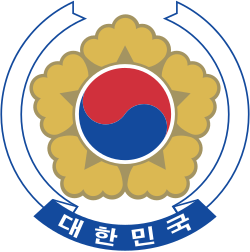Political parties
The governing Democratic Justice Party (DJP) had recently elected President Roh Tae-woo. While remaining the largest party, the DJP lost an absolute congressional majority. The party was hindered by a stronger opposition and the unpopularity of former party leader and President Chun Doo-hwan.
The opposition Peace Democratic Party led by veteran opposition leader Kim Dae-jung became the second largest party, winning more seats than another opposition Reunification Democratic Party (RDP). This was vindication for Kim Dae-jung, who came had come third in the 1987 South Korean presidential election. However, the election also showed the party's limitations, coming in as third place after DJP and RDP in popular vote and only winning seats in the Honam and Sudogwon, and nowhere outside of them.
For Kim Young-sam's Reunification Democratic Party the election was a major setback, winning third most seats in congress. This was after Kim had placed second in the first democratic presidential election, just ahead of Kim Dae-jung.
The New Democratic Republican Party (NDRP) led by former prime Minister Kim Jong-pil came a distant fourth. However, thanks to the failure of the DJP to win an absolute majority, the oppositions emerged as the major powerbrokers in the new National Assembly.
In January 1990, the DJP merged with the parties of Kim Young-sam and Kim Jong-pil to form the Democratic Liberal Party, with the former becoming its nominee in the 1992 presidential elections.
There were 224 constituency seats and 75 at large seats elected from lists in proportion to parties' share of constituency seats.
This page is based on this
Wikipedia article Text is available under the
CC BY-SA 4.0 license; additional terms may apply.
Images, videos and audio are available under their respective licenses.



